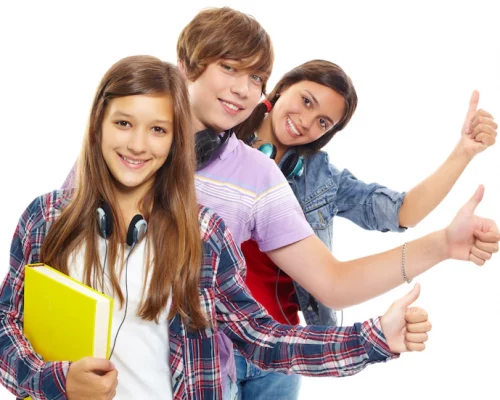Adolescence is a very tender and unique period of life, it’s a time when many changes, both physical and neuro phycological, are happening. This is a time when teens are trying to discover who they are, what is true about themselves and whether that is acceptable to those around them. They often feel vulnerable and misunderstood. Teens also have to deal with their inner critic which can reinforce negative beliefs- “I’m not good enough”, “I’m not lovable”, “I’m not smart enough” and “I’m a failure”. They are continuously comparing themselves to everyone else around them and trying to become poster perfect. All this results in emotional vulnerability which causes them to move into rumination and catastrophic thinking.
Mindfulness and self-compassion practices are powerful tools that can help teens in overcoming their inner critic.
Mindfulness is the opportunity to pay full attention to what’s actually happening in the moment. It helps to cultivate an openness to each moment and is the opposite of multi-tasking. Teens have very busy minds, trying to do more than one thing or doing 2-3 things at a time. Mindfulness helps them to focus and concentrate their energy. Mindfulness is an important tool to help them restore balance when they are in stress reactive mode.
Self-compassion training helps teens become more calm and self-regulated. It allows them to learn to care for themselves, to be friends with their own self, to like themselves, to look inward and say “wow…just like other teens in the world I’m not perfect, it’s okay to have flaws and I know that’s a common humanity piece”.
The way to practice mindfulness is learning to focus on an ‘object of attention’, which may be your breath, or part of your body, or an image, or a scene in your mind, or a phrase that you repeat like ‘I am calm & at peace’. At first it can be difficult as your attention drifts frequently, but with gentle redirection your mind can be brought back. With practice you can learn to be more in control of your attention and reduce stressful thoughts.
An easy way to start learning is by using an APP like Healthy Minds Program App https://hminnovations.org/meditation-app (named one of the best meditation apps by New York Times 2021). A free App that provides a combination of podcast-style lessons and both seated and active meditations, and help you learn what the science says about the brain while developing skills to tap into these learnings for a healthier, happier you.
As parents or care givers we can help teens flourish by encouraging them to learn and practice mindfulness and self-compassion in their daily life and acknowledge that their trip to navigate the social and emotional challenges requires sensitivity not judgement and acceptance.


